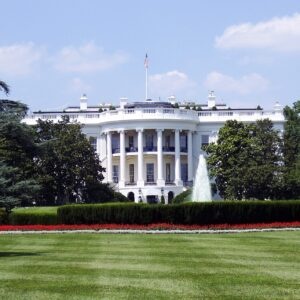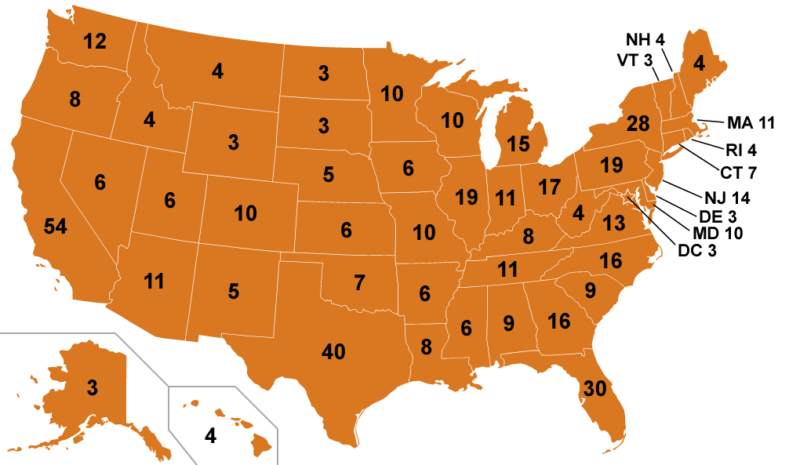The electoral college is a voting system for the president of the USA. The idea first saw light in 1787 when the Convention drafted the Constitution. Further, both Alexander Hamilton and James Madison argued in favor of the system in The Federalist. In summary, the electoral college is a group of 538 electors who officially elect the president.
The idea was to create a system suitable for the republican and federal forms of government. However, there are many more reasons for the system. First, it is the need for a thorough separation of powers. Further, to prevent larger states dominate smaller states, to protect from tyranny and threats of direct democracy.
How does the electoral college work?
So, how does the system work? When voters in the USA cast their ballot for the president and their running mate, they, in reality, vote for electors. Hence, the name electoral college.

Every state has the same number of electors as the number of representatives and senators in Congress. Altogether, there are 538 of them. Based on some criteria, the candidates (or their respective parties) choose the electors for each state. The group of electors is known as a “slate.”
Every four years, the USA holds a general election (presidential) on the Tuesday after the first Monday in November. The law sets that based on 19th-century agrarian society. As mentioned above, the voters do not vote for the electors rather than the president and vice-president.
In most states, the candidate with the most votes takes all electors for that state. However, in several states, the electors are shared proportionally.
For a candidate to win, he must gain 270 electoral votes. After the states finish counting the votes, the winner is usually known. However, the electoral college still has to vote for the president. The electors do not have to vote for the candidate who nominated him. Thus, they can alter the will of the voters. But, this has never happened before.
The reason for this is simple. If the voters were to be manipulated by a dangerous figure, the electoral college could still stop the candidate. Hence, saving the country from possible tyranny. Once again, there was never a reason for this to happen. Yet, individual electors sometimes vote for a different candidate, but they never altered the outcome.
Lastly, the vote of the electoral college must be certified in Congress.

